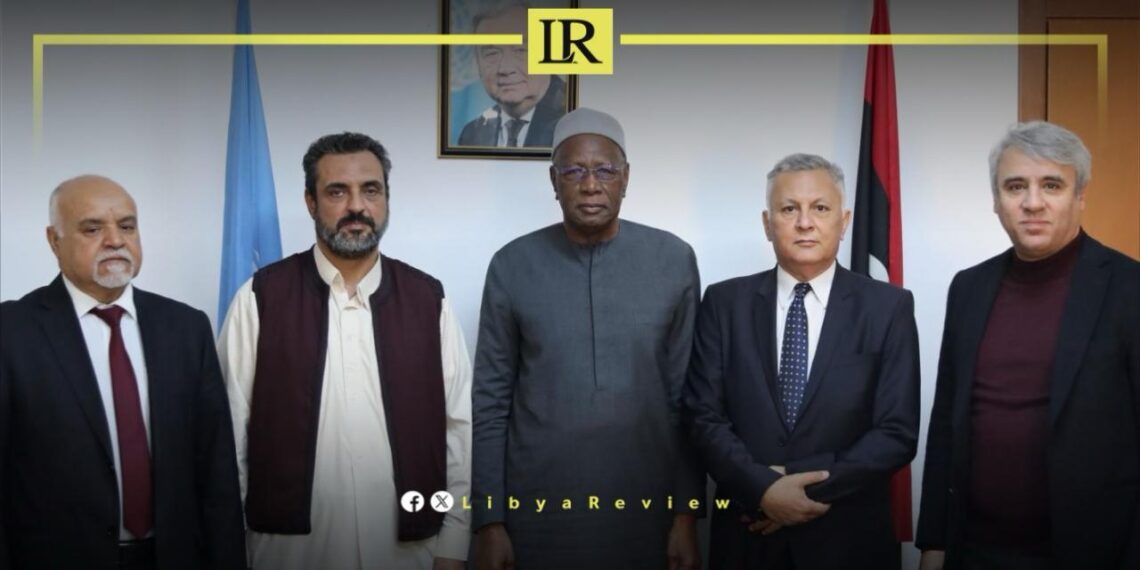On Saturday, Abdoulaye Bathily, the United Nations (UN) Secretary-General’s Special Representative, convened with members of Libya’s High Council of State (HCS), including Adel Karmous, Wahid Burshan, Salah Mito, and Nizar Kaawan, representing the National Consensus Bloc.
The discussions revolved around the current political deadlock in Libya and explored potential strategies to navigate through the impasse.
Bathily urged the HCS members to persist in their efforts to foster consensus within the HCS and with the Libyan HoR, as well as the broader Libyan political spectrum, including key stakeholders.
The focus was on the implementation of electoral laws and the establishment of a unified government to guide Libya towards elections. It emphasised the importance of collaborative efforts to achieve political stability and progress in the nation.
Notably, the UN Special Envoy, Abdoulaye Bathily, recently praised the Canadian government for its backing of the United Nations Support Mission in Libya (UNSMIL). During a meeting with Canadian Ambassador Isabelle Savard, the discussions focused on Libya’s political process and the efforts to progress it further.
Bathily shared on the social media platform X that the meeting aimed to evaluate the current political situation in Libya and the initiatives to form a unified government. He underscored the importance of bringing together Libya’s major political parties for a critical meeting. This is seen as a step toward organizing elections to renew the legitimacy of the country’s institutions.
In another development, Bathily and General Khalifa Haftar, the Commander-in-Chief of the Libyan National Army (LNA), met at the LNA headquarters in Benghazi to discuss Libya’s political landscape and election preparations. The LNA media office highlighted the agreement on the need for a conducive environment for a democratic electoral process, with General Haftar affirming support for the UN’s efforts towards Libya’s democratic transition.
Both meetings reflect ongoing international and national efforts to navigate Libya’s political challenges and work towards establishing a stable, democratic governance framework.


